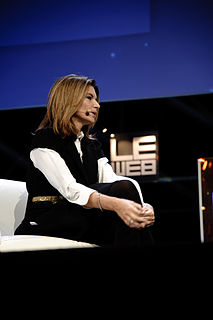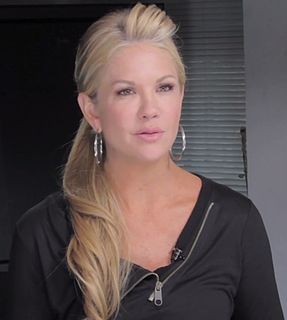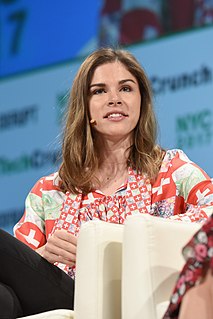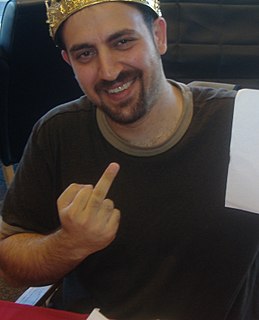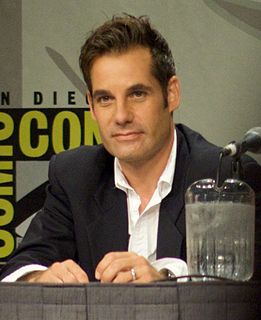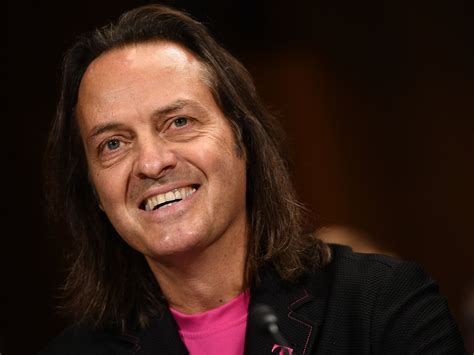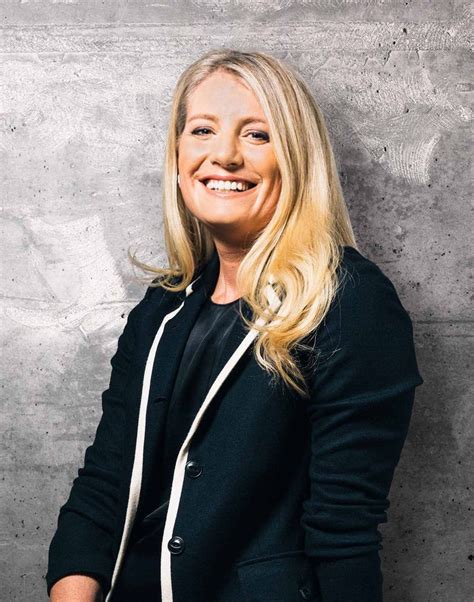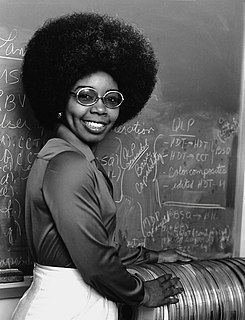Top 481 Iphone 5 Quotes & Sayings - Page 8
Explore popular Iphone 5 quotes.
Last updated on December 4, 2024.
People are getting careers from YouTube and uploading videos. And they're totally different - you can't necessarily be funny on a video, and then all of a sudden you're live in a theater. You don't have the tools yet. It's a lot more involved to go from being funny on a little iPhone screen to being live in front of people and being funny.
I look at my son and his relationship to technology, and I think back to when I was six and how wildly different the world is in that regard. I see him using an iPhone and all this stuff, and then I think back to when I was six. We didn't even have computers in our houses at all yet. This is a huge gap between our experiences as children.
After my family leaves in the morning, I'll make my first coffee of the day and then I head upstairs to go to work. At least, that's my plan. I'm not going to check email. I'm not going on Facebook, or sneaking a glimpse at my Instagram feed. No. I'm not going to down that road. But with multiple devices, by the time I get upstairs [to my study] I may well have heard my iPhone ding and - it's Pavlovian.
You know, this iPhone, as a matter of fact, the engine in here is made in America. And not only are the engines in here made in America, but engines are made in America and are exported. The glass on this phone is made in Kentucky. And so we've been working for years on doing more and more in the United States.
It’s interesting that most gadgets are called ‘iPhone’ and ‘iPod,’ with that ‘i’ prefix, which is ego. But most creativity is not ego-led – a lot of it comes from the unconscious. So if you’re always checking your email or updating your Instagram profile, you’re not just looking out the window, daydreaming. You’ve got to let the subconscious in – that’s my main message to the world.
In terms of technology and science, tomorrow does know more than yesterday; but when it comes to emotions, living with uncertainty, terror, I'm not sure we know any more than Shakespeare did, or the Buddha. And the power of new things - the iPhone or Facebook - is so strong and intoxicating that we sometimes forget that none of them can fundamentally change our relation to ourselves and to what matters.
I want to listen to my Apple Music on my iPhone. I also want to listen to it on my iPad. I want to play it on my Apple TV; I want to be connected everywhere I go. It fits into the puzzle of everything that is Apple, and, therefore, it should not be seen as some sort of separate entity that is trying to find its way.
I don't think it's necessary to worry too much about being authentic. I think a picture taken on an iPhone and then filtered through something to make it look like it was taken on a Super 8 camera can be just as authentic as something taken on a Super 8 camera, if it's capturing something real or beautiful.
You have as much computing power in your iPhone as was available at the time of the Apollo missions. But what is it being used for? It’s being used to throw angry birds at pigs; it’s being used to send pictures of your cat to people halfway around the world; it’s being used to check in as the virtual mayor of a virtual nowhere while you’re riding a subway from the nineteenth century.
I love my job so much. I thought, what a cool way for kids to learn, via assignment, via reporting. I learn so much as an adult going around and covering these stories. How fun it would be to do it via a storybook app and cartoon characters. My daughter can work on an iPhone and iPad like crazy. That's their world. If you can use that, use it educationally.
Alistair Crowley used to define magic as anything in which you can exercise your will in the world through the use of your mind. So what's the magical way of opening or closing that door? Well, to will your body to stand up and close or open that door, that's magic. With the iPhone, it's like you put your intent into it, and it helps you exercise that intent in the world.
I am living in the Google years, no question of that. And there are advantages to it. When you forget something, you can whip out your iPhone and go to Google. The Senior Moment has become the Google moment, and it has a much nicer, hipper, younger, more contemporary sound, doesn't it? By handling the obligations of the search mechanism, you almost prove you can keep up.... You can't retrieve you life (unless you're on Wikipedia, in which case you can retrieve an inaccurate version of it).
If you were the first person ever to design an application for the iPhone and you patented it, you would be very, very better off than we are right now, you know? But you've got to be the first one to do it. So I figured that Led Zeppelin or the Stones were going to do it unless we just got on to it. So I got cracking with the guys from Apple.
People who write about technology love to huff and puff and hyperbolize. The fate of the entire world seems to hang on every move made by Microsoft or Google or Apple. Every new smart phone gets billed as a potential 'iPhone killer,' while every new product from Apple represents the dawn of a new era. It's ridiculous - and exhausting.
I think because of the iPhone and the fact that we now have a ubiquitous internet, our creativity in the startup space is 10 times different. Every single industry, every single market, is going to be technology-driven in some way. There's an infinite opportunity for startups because now you can go and solve problems that previously looked like they had nothing to do with technology.
Never has the divide between the iPhone world and the politics world been so clear: I saw a bunch of people very well-served by their computers and telephones (very often Apple products) but undeniably shortchanged by our government-run cartel education system. And the tragedy for them - and for us - is that they will spend their energy trying to expand the sphere of the ineffective, hidebound, rent-seeking, unproductive political world, giving the . . .politicians. . .an even stronger whip hand over the Steve Jobses and Henry Fords - and we will be the poorer for it.
I typically set at least three alarms. I have two alarms set on my iPhone, I still use a Blackberry for work, so I set my alarm on that, and then if I'm staying in a hotel, I request a wake-up call. I've never overslept - knock on wood. But I have had an instance where one of my four alarms has failed, so that's why I stand by the multiple alarms.
The papers that flourish will be papers that serve a national audience. Papers that have figured out how to make the transition to the electronic platform that aren't simply providing a duplicate experience of the words on paper experience, but are doing something that arises organically from the new electronic medium. It's really just a matter of finding the right platforms for the way people want to read newspapers. I mean, maybe it will be the iPhone. But one way or another, newspapers on paper are just not really going to exist to any significant degree within a decade.
I am on Vine. It's another early-adopter kind of thing. I'm trying to figure out what I'm going to do with it. What's interesting about it is that everybody knows these amazing restrictions we've put on it: I have to use my iPhone, I can only use one continuous take, I cannot edit afterwards, I cannot put sound afterwards.
Google Now is one of those products that to many users doesn't seem like a product at all. It is instead the experience one has when you use the Google Search application on your Android or iPhone device (it's consistently a top free app on the iTunes charts). You probably know it as Google search, but it's far, far more than that.
The FBI wants Apple to write software code to help it break into the iPhone. Apple doesn't want to say this. Andrew Crocker, an attorney with the Electronic Frontier Foundation, or EFF, a digital civil rights group, says the government can't make you say what you don't believe. He looks to a Supreme Court case that began in New Hampshire.
There are many factors that impact the value of login credentials sold on the dark web. The main factor is how easy it is for a hacker to resell the merchandise, especially from a brand name, i.e., it's easier to sell an Apple iPhone over a pair of boots. Another factor that contributes to cost on the dark web is if there is a credit card saved on the account file and whether the stolen credentials have been verified. This means that a hacker was able to verify a successful login and the owner/consumer hasn't changed their password so we can expect even more fraud transactions to come.
Price point is always important for mass market commodities. Look at the iPhone. It's expensive. But I think it is going to sell. It does something that people really want to do. People want to share it. It's an emotional thing that goes beyond the price point. It has emotional power. You are connected to it.
More and more people are watching entertainment on their phones. On a plane or on a train, or whatever, you see people with their headphones and they're looking at their iPhone or their Galaxy. You're reducing a medium that's meant to be seen on your 65-inch plasma screen at home for your 4-inch monitor on the train. People are ready to do either, and the content has to work on both.
Everybody has their iPhone cameras, BlackBerry cameras, and I see those cameras pointed up at me all the time now, which is actually really good because of what it does for me and my band. There is no time for us not to be on our toes because they're on all the time whenever you're playing. I think it's very healthy.
I'm not a gadget freak, so to say. I own an iPhone, which I love, and would sorely love to upgrade to MacBook Air from my current MacBook Pro. But what gets me going is the technology behind the gadgets, new websites, new apps. And I'm way too much into social media - FB, Twitter and Instagram are always open on my phone.
I like the iPhone, the iPad, all the various members of that family. But I like all the various technologies that are becoming available to make the world more accessible to people who are blind and with low vision. I also like that more and more people are committing themselves to close captioning so the deaf can really know what's going on. I like the position of making buildings more accessible by having ramps and various ways people who are paraplegic to be able to get around.
Deutsche Telekom was a brand that people still loved, the nerds loved it, and it was still there, it was still visible. The advertiser was OK. But it was a mess. It was in my mind, though, intuitively obvious what to do. I had some advisers and friends, and we looked at it and said all you have to do is get the iPhone, buy some spectrum, consolidate the industry, reinvigorate the brand, and take this company public.
Shooting on the iPhone has become more of a directors' tool to lower inhibition of first-time actors and nonprofessionals. While it's helped me become more mobile, no pun intended - running around, finding tight areas and different ways of moving the camera - to me it's more about using this device to catch candid moments. That's the biggest thing.
The book that influenced me most is Sherlock Holmes, which teaches you the way to deal with reality: to deduct. It teaches you to put together the signs. For example, I look at a person and I see their coat, their jacket, their handwriting, their iPhone, and I am able to deduct some details about who they are, what they wear, and what they do. For many years I was fascinated with Sherlock Holmes. The series trained me to look at the world through these sharp, unforgiving eyes.
If I am forced to come up with organizing tips, I use my iPhone and I have my to-do list that I keep there, and I try to go in weekly and have at it. I am never going to get through that entire list, so I have to weekly, as I check in, push up the priority and the three or four things that I absolutely have to get done, and constantly reorder the list. If anything, I feel like I have gotten more comfortable with that fact: knowing that what is really, truly important will get done and then being comfortable when other things fall by the wayside.
We'll get a chance to go through this [Apple versus Microsoft debate] again in phones and music players. There's no chance that the iPhone is going to get any significant market share. No chance. It's a $500 subsidized item. They may make a lot of money. But if you actually take a look at the 1.3 billion phones that get sold, I'd prefer to have our software in 60% or 70% or 80% of them, than I would to have 2% or 3%, which is what Apple might get.
I'm fascinated by the new iPhone. I bought it and kept trying to use it in France. "Siri, what is a good restaurant?" (In a robotic voice.) "I'm sorry, Robin. I can't give locations in France." "Why, Siri?" "I don't know." It's like she was upset with the French or something. "They seem to have an attitude I can't understand. Should I look for Germans, Robin?"
You don't need the iPhone: you have the most exquisite apparatus in the known universe sitting right in your head - the most complex organization of matter in the entire universe. And here are we, feeling a little depressed, feeling like we're not getting where we need to be, when really you might be exactly where you need to be.
I think I've owned all the models of iPods so far. And these days between my iPod, iPhone and my personal laptop computer, I'm someone who is very, very grateful for all the ways to listen to music and completely switch off from people around me and listen to the music in detail, which is very hard to do if you're in a room with other people.
The new iPhone has encryption that protects the contents of the phone. This means if someone steals your phone - if a hacker or something images your phone - they can't read what's on the phone itself, they can't look at your pictures, they can't see the text messages you send, and so forth. But it does not stop law enforcement from tracking your movements via geolocation on the phone if they think you are involved in a kidnapping case, for example.
I know a lot of people don't like the big phone [ iPhone] because they can't use it one-handed. But I'm telling you, it is a marvel. Aside from a couple of things, it's my favorite thing that I have. It's just the absolute best. The thinking, the inventiveness, the innovation that's in these devices blows me away. It's the first thing to come along in a long time that actually makes me regret getting older. I'm now realizing the tech that I'm going to miss at some point.
I definitely have a Luddite's approach to what's going on. I find that as I get older, I get stupider. For me, the iPhone is harder than reading Faust. I've been hanging out a bit with Lou Reed, and he's the complete opposite. He's into technology and is kind of like a toddler, compared to me, who's like an old 19th-century widow or something.
What do we do if we pass a law that says this has to be done, and then China says, oh, well, OK, we're going to pass that law too and we want access to every iPhone in China? Iran says the same thing, Russia says the same thing - you know, the bad guys go underground. They'll shift to some other encrypted platform.
We're actually trying to develop an iPhone app, now that the Droid is out, we'll do it for that as well, if we ever learn how to program on this thing. But the idea is that to make money concrete. So, you can do this app, and it's not out there, but you can do the app. And you say, "I like vacation in the Bahamas, shoes, lattes, and books." And now, when you are tempted to buy something, that thing translates in terms of the things you are interested in.
The frustrations and joys of parenthood are just hard to understand until you have a kid... the constant fight you're having with yourself, like loving being with your kid but also being kind of bored and wanting to look at your iPhone - it's kind of an interesting thing that's hard to write about before you've experienced it.
LA isn’t a walking city, or a subway city, so if someone isn’t in my house or my car we’ll never be together, not even for a moment. And just to be absolutely sure of that, when I leave my car my iPhone escorts me, letting everyone else in the post office know that I’m not really with them, I’m with my own people, who are so hilarious that I can’t help smiling to myself as I text them back.
When the Mac first came out, Newsweek asked me what I [thought] of it. I said: Well, it's the first personal computer worth criticizing. So at the end of the presentation, Steve came up to me and said: Is the iPhone worth criticizing? And I said: Make the screen five inches by eight inches, and you'll rule the world.
I'm gathering Kylie thinks that all it takes to capture an image is to point and shoot. That's what everyone thinks. But there's a lot more to it. It's taken me years to frame things correctly. People assume you can't take good pictures on an iPhone, but they're wrong. Some of my best shots are on the phone.They're raw and simple, and most of the time no one knows you're taking a picture. It's much better than the thousand-dollar Nikon my dad got me for Christmas. I don't think I've used it in months.
Here at home, we need to do two fundamental things. Number one, we need to recognize that technology has moved on. The Patriot Act was signed in 2001, roughly. The iPhone was invented in 2007. The iPad was invented in 2011. Snapchat and Twitter, all the rest of it, have been around just for several years. Technology has moved on, and the terrorists have moved on with it.
digital hub (center of our universe) is moving from PC to cloud - PC now just another client alongside iPhone, iPad, iPod touch, ... - Apple is in danger of hanging on to old paradigm too long (innovator's dilemma) - Google and Microsoft are further along on the technology, but haven't quite figured it out yet - tie all of our products together, so we further lock customers into our ecosystem











